Most people try to hold onto love.
This week, we’re trying to figure out patience.
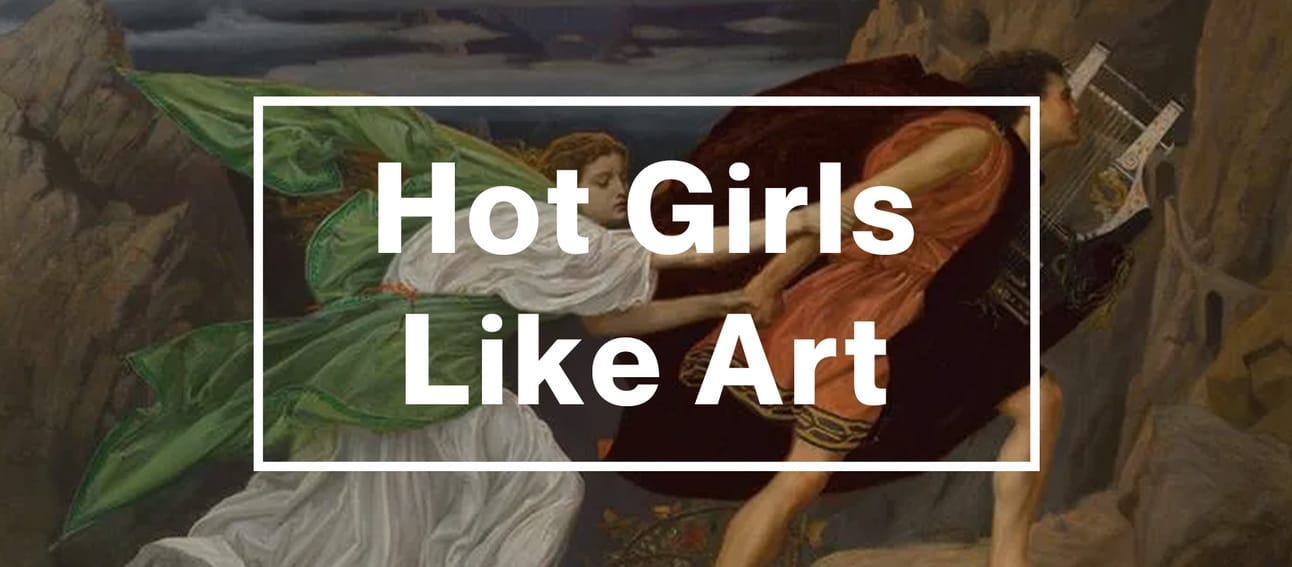
This is my second week looking at patience.
Last week, I tried but found myself caught in a phase of urgency.
I was working with a brand that needed things done fast—something I hadn’t experienced for a long time.
This week, I’ve had time to reflect, and I feel like it’s an opportunity to share something deeper about my practice.
I hope this newsletter resonates with you, because writing it hurt.
Waiting
Time moves slow when you want it to move fast.

Patience is something I have always struggled with.
I want things to happen as fast as possible.
For a long time, that impatience has led me to places where I wasn’t necessarily getting what I truly needed.
It has taken me years to build a practice that resonates with how I see the world, and even longer for that to be enough to put food on my table.
That’s something I’m really grateful for.
This week I hope to give you a deeper dive into how I work on my longer-form paintings and hopefully it will justify why they’re taking so long to come to fruition this season.
Obsession
Is it real, or just a well-designed illusion?
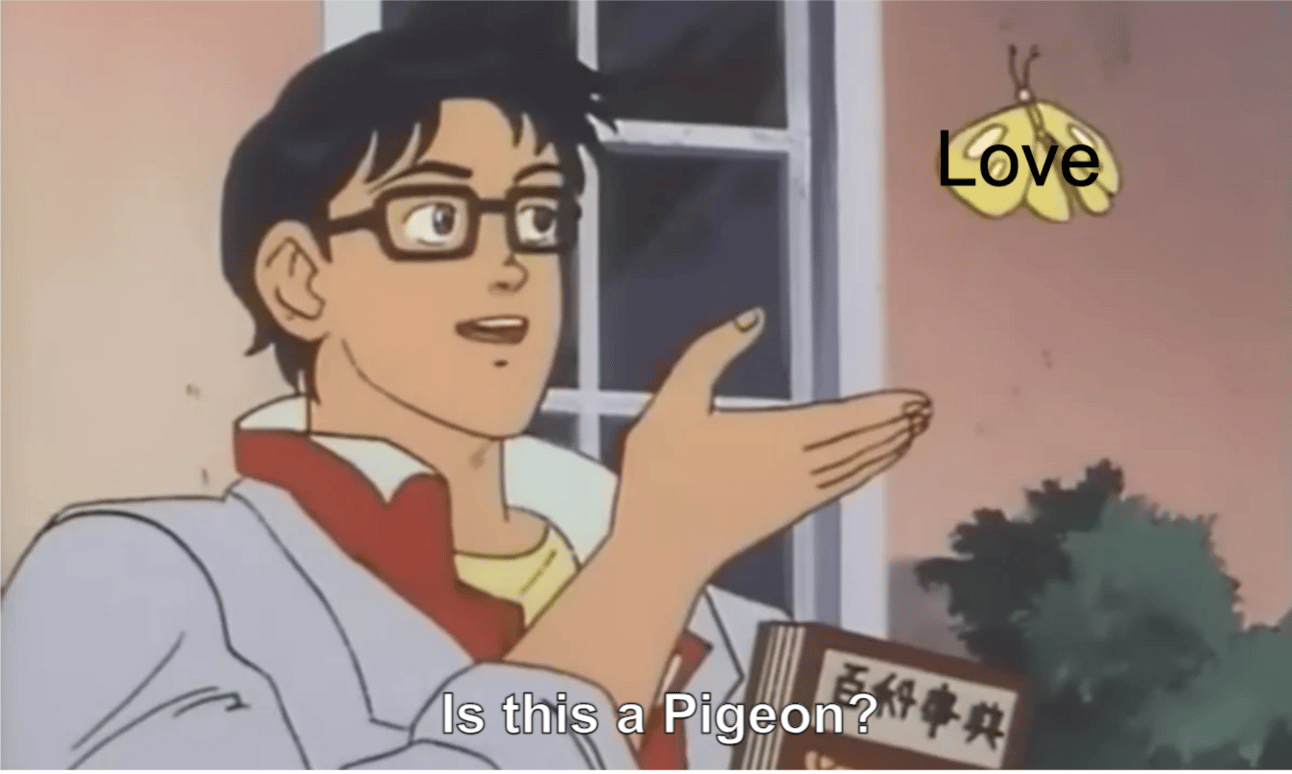
Attachment Issues
Since 2022, I’ve been on a long-form research study of love.
Love today is less a feeling and more a product—sold in dating apps, packaged in movies, optimized for engagement metrics.
We are trained to crave it fast, to consume it without patience, and to discard it when the next model arrives.
The way we experience it is shaped not just by personal encounters but by industries that profit from impatience—dating apps that gamify romance, media that sells urgency, and algorithms that push us towards quick gratification.
We are conditioned to chase love fast, to consume it, rather than to sit with it.
The way I navigate art is by living it.
If I don’t have the experience myself, I seek it.
That’s where I’ve done most of what I consider my authentic work—the work that isn’t just about selling something.
The work that is about living in unusual ways and experiencing things others may never see and touch.
I don’t have many answers. But, what I do know, is that love is an enigma we’re all addicted to, and we may never understand it.

From 2022 to 2024, I interviewed over 50 people with unique or interesting perspectives on love.
I spoke with those who had lost parents, partners, and children.
I talked to sex workers, sex addicts, and those who abstained from love altogether for fear of its damage.
It was a confusing, tangled experience, but what I learned is that love is deeply personal, and everyone has their own definition, that changes as fast as they do.
Most importantly, they have the right to that definition.
Because that is where freedom is.
And yet, paradoxically, love is also the relinquishing of that freedom.
It is handing over control to someone else in exchange for something we desire
—them.
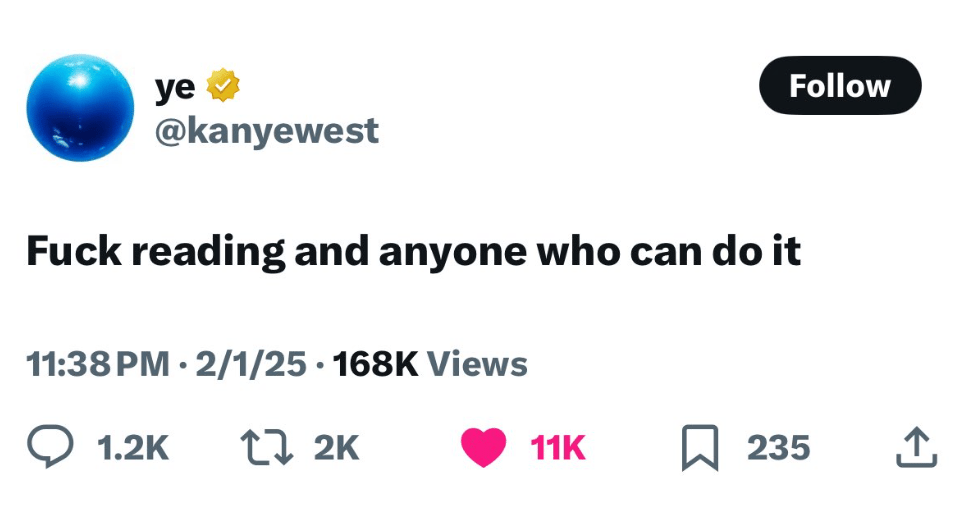
Taking people’s advice on love
Love is the oldest currency, the first contract.
It is the quietest kind of surrender, disguised as desire.
In this way, it has been central to art for centuries—not just in expression but in method.
Artists like Sophie Calle and Bas Jan Ader have made their lives into artistic experiments in love and loss.
Calle’s 'Take Care of Yourself' is a conceptual piece that transforms heartbreak into a public dissection, while Ader’s 'In Search of the Miraculous' turned his own disappearance into the ultimate act of longing.
My work, though different in approach, follows a similar form—using lived experience as a material for creation.
How we engage with the world shapes our sense of identity, and therefore what we produce.
When you create, you leave fingerprints on the world.
When you act, the world leaves fingerprints on you.
Descent
What happens when you need proof of love?

Orpheus playing songs for the Nymphs
I’m working on a painting about Orpheus.
Orpheus was the greatest poet of ancient Greece.
He wandered, playing his lyre, accompanied by Eurydice, a tree nymph—one of the greatest muses to have ever lived.
She traveled with him, listening to his music, until one day, while being pursued, she was bitten by a snake and died.
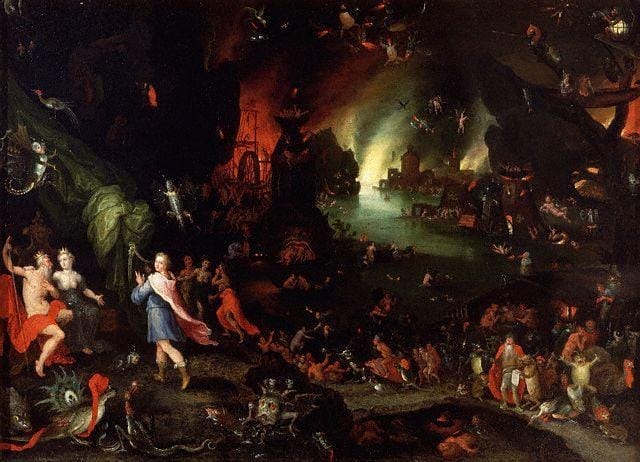
Orpheus ruining the vibe in the underworld
Stricken with grief, Orpheus searched for her, playing his lyre in the darkest places of the world.
When the mortal realm failed him, he descended into the underworld.
As he played, His music filled the underworld, an echo of loss so piercing even the dead began to listen.
Hades and Persephone, lovers themselves, recognize the song for what it is—a plea, an ultimatum, a prayer—and against their better judgment, they offer a deal.
He could lead Eurydice back to the land of the living, and she’d be free to leave, but only if he could leave the underworld without checking to see if she follows until they both cross into the light.

Orpheus making some bad calls
As Orpheus steps into the light, he hesitates—not out of doubt, but out of something worse.
Certainty.
And certainty, in love, is always fatal.
Was she really there?
Did she still want to follow?
The weight of uncertainty crushed him.
As the first rays of light hit his face, he turned—and saw her, still within the darkness. In
That was the last chance he had to see her..
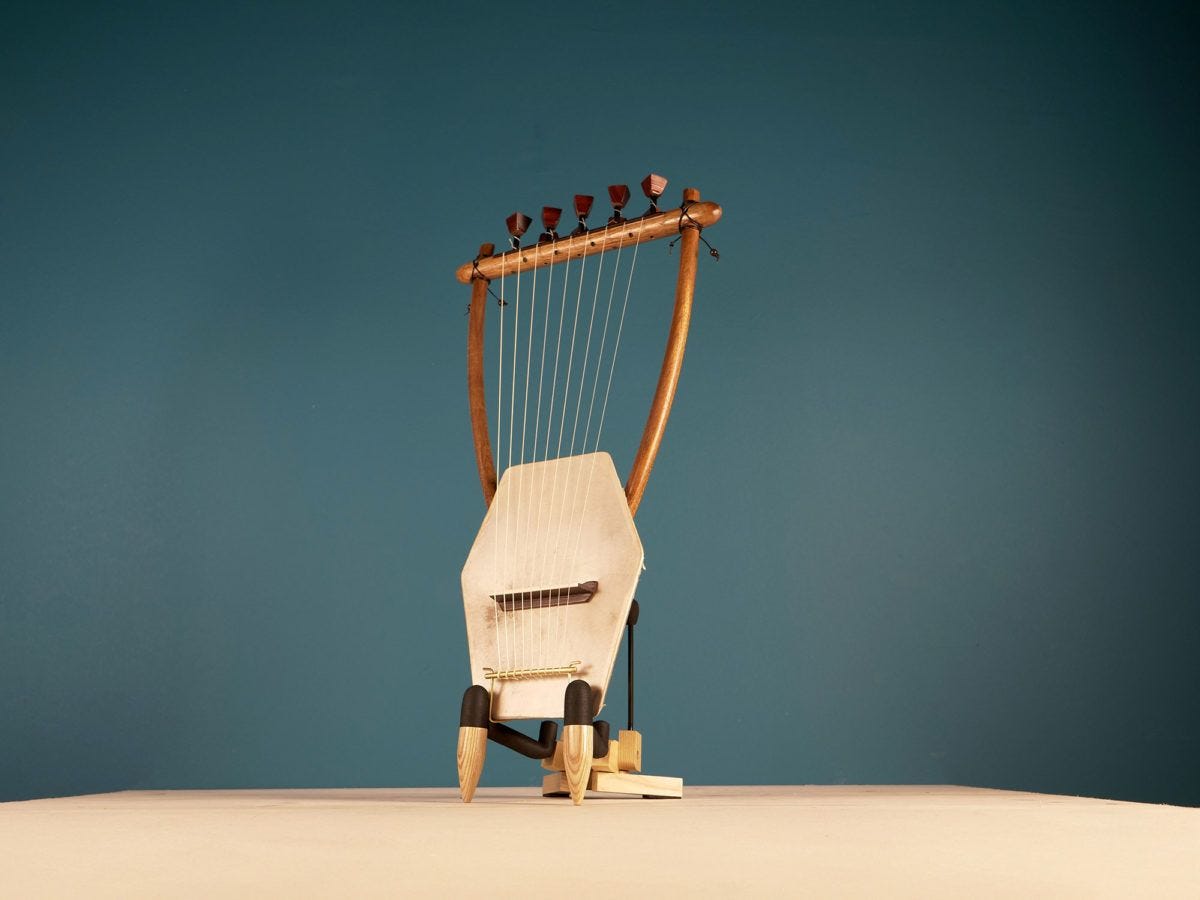
looks heavy…
What was he left with?
He had tried everything.
He had traveled through love, loss, and desperation.
And in the end, he had only one thing left:
The Lyre.
Echo
Some things are meant to slip through your fingers.
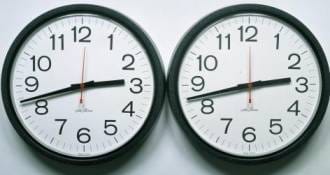
"Untitled" (Perfect Lovers), (1987-90) Félix González-Torres
In December, I met someone.
Someone I didn’t expect.
I had been girl-sober for over a year, which had helped my practice and allowed me to talk to people in ways I never could while in a relationship.
But this person was different.
Our connection was something I hadn’t felt in a long time.
The faint flicker of love.

Soon after meeting and realizing what I was experiencing, she told me she was leaving the country forever.
Suddenly, there was a time limit on the feeling, on us.
Something inside me hurt.
But I saw an opportunity.
What if I could feel what Orpheus felt?
What if I could experience loss, not in theory, but in reality?
What if I could paint that pain, not as an observer, but as someone who had lived it?
They visited the studio.
When the moment felt right, I asked them if they would be willing to play that game with me.
Four weeks of intensity.
A honeymoon before a wedding.
A flicker, a fire, then a collapse into inevitable ash.
Some of the most special moments I’ve had with a human.
Allowing me to feel the pain I needed to feel—to understand, even slightly, what it is to lose someone and know they will not return.
To be left with nothing but the art.

I wish I knew what to do…
Now, I stand at an impasse.
I know what I need to do.
I need not look back.
I need not chase.
I need not check to see if it was real.
Because maybe it wasn’t.
Maybe I was just chasing a painting.
Maybe, to them, I was just an experience—a fleeting moment with a man who lives in strange ways.
The heart of another is a locked room, and when we turn the handle, we risk discovering it was never meant for us to enter.
Threshold
What if waiting isn't the answer?

Patience often masquerades as acceptance, but is it always wise?
Impatience, at least, forces movement. But is patience always good?
Could impatience be its own kind of power?
Sometimes, patience is a trap—a slow erosion of urgency, a passive submission to fate.
Orpheus, in his impatience, lost everything.
But what if he had never turned?
What if he had doubted, but walked forward anyway?
Would he have been reunited with Eurydice, or would he have found himself waiting, only to realize she had never followed?
The truth is, we never know.

Maybe it’s better to wait…
Impatience forces movement, even if it risks loss.
Maybe that’s part of the answer.
It’s not about waiting for the right moment or feeling.
It’s about accepting that the moment may never come.
And that right now is enough.

And though I can write these words, though I can commit them to this page, I know that once I step away, impatience will return.
Because I am not complete.
I am not at peace. If I were, I wouldn’t need to do all of this.
I wouldn’t need to work the way I do, push as hard as I push.
And I don’t know why I do it.
I don’t know what I’m searching for, or why I want things to happen so fast.
But I do know this:
Perhaps if I were patient, I could be happy.
Or perhaps if I were happy, I wouldn’t need patience at all.
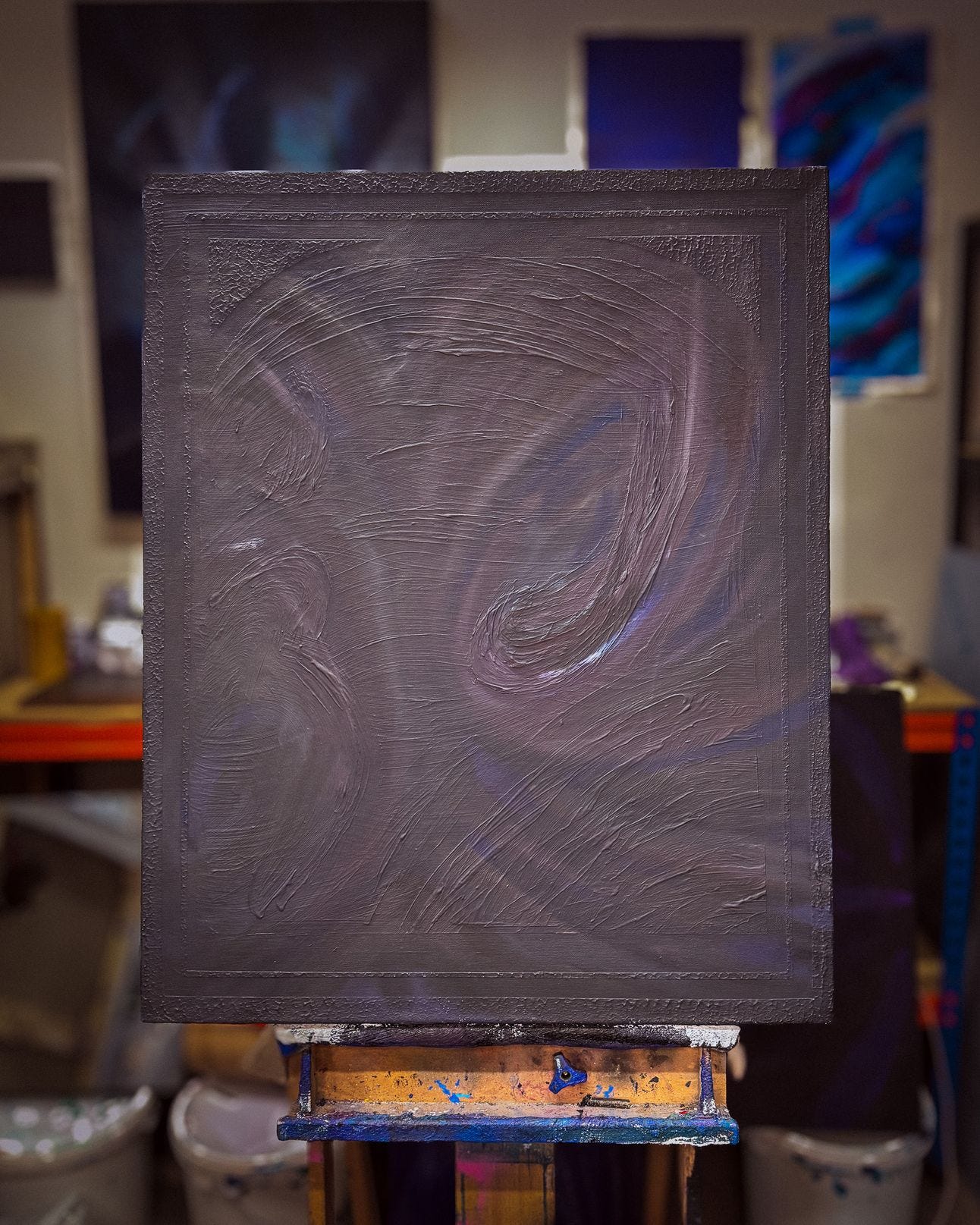
Apparently, it’s bad form to share WIP.
But I like you more than I like them.
Orpheus’ Lyre (WIP)
with love,
yours always,
R
Poet’s Corner
Patience
Impatience comes in many forms, but never long and slow,
Usually a short, sharp, snap; an angry word, a single no.
Patience can be stretched until it’s wearing thin , then snaps in two,
Then gum that gap, ball patience in a tightly clenched fist, breathe, take time for you.
Though naturally it comes to some; Patience can be learned,
The beat of time, the pause of breath, that unspoken angry word can be quelled before it slips out. Intended, gentler words are heard instead,
Andno-one knows the argument you’ve just had inside your head.
Impatience turns to patience with some time and practising,
Patience is a quality of which I am admiring.
-Rachael


